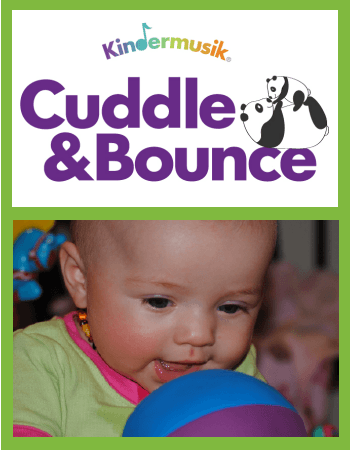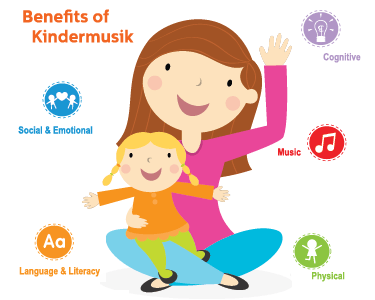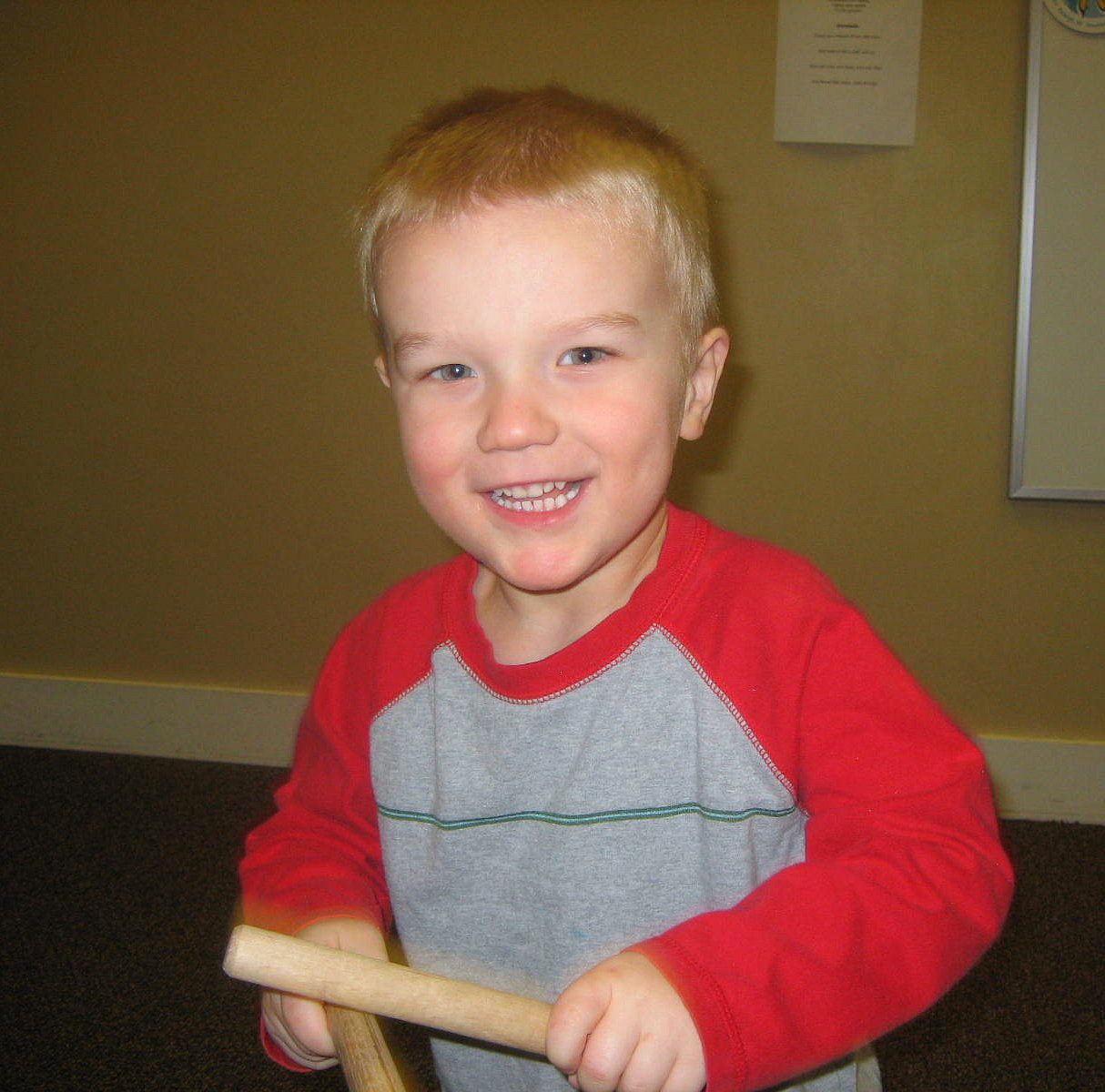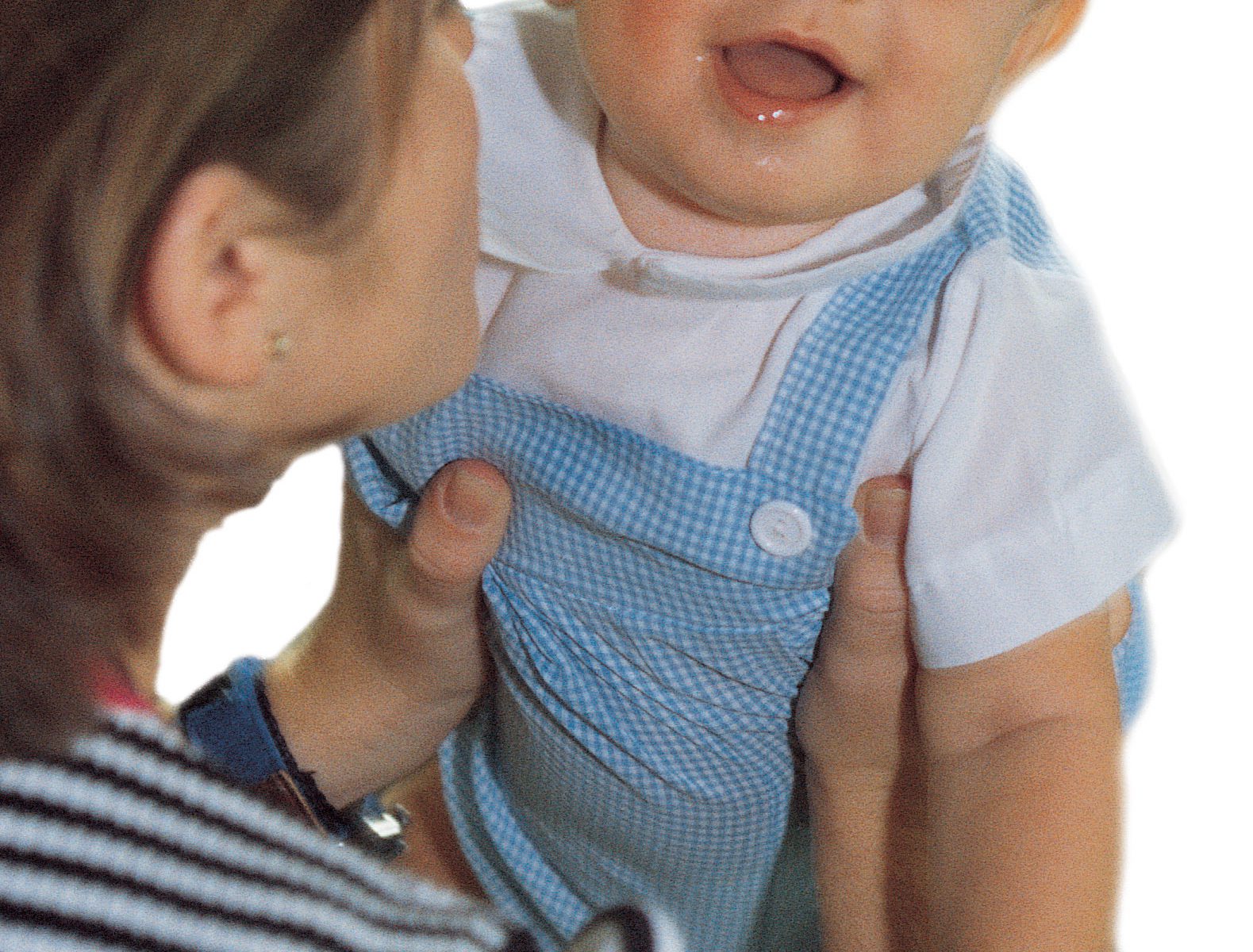 Some people are surprised to find out that Kindermusik is for children as young as newborns. In fact, a new curriculum called “Cuddle and Bounce” created just for newborns and 1 year olds along with their parents will be available soon. But really, what can such a small child gain from starting Kindermusik before they can even crawl or walk?
Some people are surprised to find out that Kindermusik is for children as young as newborns. In fact, a new curriculum called “Cuddle and Bounce” created just for newborns and 1 year olds along with their parents will be available soon. But really, what can such a small child gain from starting Kindermusik before they can even crawl or walk?
The following statement, jointly issued by The National Association for Music Education (MENC), the National Association for the Education of Young Children (NAEYC), and the US Department of Education, helps explain just how important music education for even the youngest musicians can be….
The Value of Music for the Very Young
The idea that very early education provides great long-term benefits has been rendered incontestable by studies in cognition and early learning. Research in developmental psychology and commonsense observation underscore both the importance and the wisdom of making music an integral and overt part of the earliest education of young children:
(1) We know that music is among the first and most important modes of communication experienced by infants.
The youngest children lack the gift of speech, but they are deeply responsive to the emotional ethos created by music. The lullabies sung by parents help children to accomplish the fundamental developmental task of learning-to trust their environment as a secure one. Songs communicate adult love and the experiences of joy and delight; they teach children that the world is a pleasurable and exciting place to be. Music is essential to the depth and strength of this early foundation for learning and for connecting to life itself.
(2) As young children grow and develop, music continues as a basic medium not only of communication, but of self-expression as well.
Through music, children expand their cognitive universe as they first experience-and later learn to produce-sounds organized to carry musical meaning within their culture. Music expands memory and assists in developing crucial language skills. Music exerts a multiplier effect on reasoning skills, especially on spatial reasoning-an effect that has been demonstrated experimentally. Music also reinforces such logical and perceptual ideas as beginning and ending, cause and effect, sequence and balance, harmony and dissonance, as well as arithmetic concepts such as number, enumeration, and timing.

In addition, as centuries of tradition and modern vehicles such as Sesame Street have taught us all, music in the lives of young children is a highly effective means of delivering vital information about the world itself, as when it is used to teach such basic content as counting, colors, relationships among ideas, social skills, and the wonders of the natural world. Music is also a powerful tool for communicating the full spectrum of human emotion in ways appropriate to children’s experience. Children who may not be able to express verbally their happiness, anger, or sadness can find in music the right outlet and mode for what they cannot yet identify or express clearly using the tools of language.
(3) As preschool children not only listen to and respond to music, but also learn to make music by singing and playing instruments together, they create important contexts for the early learning of vital life skills
such as cooperation, collaboration, and group effort.
(4) Guided music experiences also begin to teach young children to make judgments about what constitutes “good” music,
thereby developing in them the rudiments of an aesthetic sense.
(5) Music contributes strongly to “school readiness,” a foundational education aim of the American people for all our children, as expressed in our National Education Goals.
Music experiences can help children prepare to learn to become literate as it helps them become more aware of and focused on the phonemes that make up the language or languages they will need to excel in school. When children develop musical skill and understanding, they are developing basic cognitive, social, and motor skills necessary for success throughout the educational process. They are preparing skills that will apply to language, to literacy, and to life itself.
…[U]nless the positive learning engendered by music in the earliest years is nurtured by those in the best position to provide it, i.e., parents, music teachers, and professional caregivers, the educational power of music and its potential for sound development can be diminished and diluted.
 See the value of music in action…Try a Free Kindermusik Class!
See the value of music in action…Try a Free Kindermusik Class!
– Excerpted from a report from the Early Childhood Music Summit, June 2000 and shared by Theresa Case, whose Kindermusik program at Piano Central Studios in Greenville, SC, is proudly among the top 1% of Kindermusik programs worldwide.
 The body of music education research continues to grow concerning how musical learning can increase social-emotional abilities, math skills, language development, inhibitory control, collaboration, empathy, creativity, cultural understanding, and so much more. Studies show music can decrease pain during medical procedures, lower blood pressure, and lift our overall spirits.
The body of music education research continues to grow concerning how musical learning can increase social-emotional abilities, math skills, language development, inhibitory control, collaboration, empathy, creativity, cultural understanding, and so much more. Studies show music can decrease pain during medical procedures, lower blood pressure, and lift our overall spirits.











 “Experiences and sensations are learning. Sensations form the base understanding from which concepts and thinking develop. Therefore, sensory enriched environments are imperative to learning.”
“Experiences and sensations are learning. Sensations form the base understanding from which concepts and thinking develop. Therefore, sensory enriched environments are imperative to learning.”